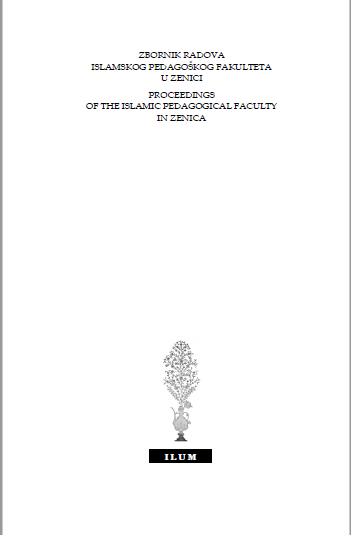OSOBENOSTI IMPLEMENTACIJE KOOPERATIVNOG UČENJA U OSNOVNOŠKOLSKOJ RELIGIJSKOG EDUKACIJI
THE CHARACTERISTICS OF COOPERATIVE LEARNING IMPLEMENTATION IN ELEMENTARY SCHOOL RELIGIOUS EDUCATION
Author(s): Hasudin Atanović, Esad MemićSubject(s): Islam studies, School education, Evaluation research, Sociology of Education, Sociology of Religion
Published by: Islamski pedagoški fakultet Univerziteta u Zenici
Keywords: cooperative learning; traditional teaching; quality of religious education; social skills development;
Summary/Abstract: Exploring the attitudes of students and teachers of Islamic religion, this study aimed to determine the characteristics of the implementation of cooperative learning in comparison to traditional teaching in elementary schools. The research was based on the assumption that there are some features of cooperative learning which make it more effective than traditional teaching in elementary school religious education. A method of theoretical analysis, a descriptive-analytical method and testing were used to gather data in the current study. The following instruments were used: 1) a test measuring the knowledge of Islamic religion; 2) a survey exploring the students' and teachers' attitudes about religious education; 3) a survey investigating the teachers' attitudes about cooperative learning in religious education. The research instruments were designed for the purposes of this study. The research sample comprised 25 seventh grade students (13 students of NMS Spittal an der Drau elementary school and 12 students of NMS Villach elementary school in Carinthia, Austria) and 104 Islamic religion teachers (90 from Bosnia and Herzegovina and 14 from Austria). The results showed that the students involved in cooperative learning achieved significantly better results on the test of knowledge of Islamic religion than the students taught in a traditional way. Moreover, the findings revealed that the greatest number of the teachers from B&H and Austria apply cooperative learning in their classrooms, that they consider their learners more motivated when involved in cooperative learning, and that it contributes to more free and open communication among students, a better school achievement, and durability of knowledge.
Journal: Zbornik radova Islamskog pedagoškog fakulteta u Zenici
- Issue Year: 2018
- Issue No: 16
- Page Range: 97-114
- Page Count: 18
- Language: Bosnian

